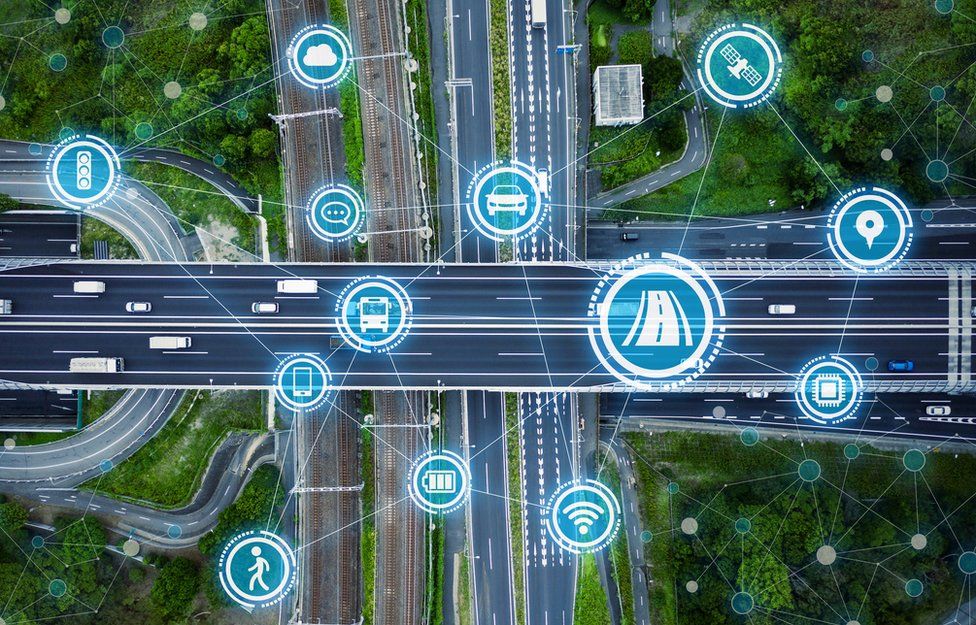Could the world cope if GPS stopped working?
With no GPS, emergency services would start struggling: operators wouldn't be able to locate callers from their phone signal, or identify the nearest ambulance or police car. There would be snarl-ups at ports: container cranes need GPS to unload ships.
How does GPS affect the world?
In addition, GPS provides critical data for weather forecasting, agricultural planning, and even disaster relief efforts. Without GPS, our world would be a much less efficient and navigable place.
Why do we need GPS?
GPS receivers provide location in latitude, longitude, and altitude. They also provide the accurate time. GPS includes 24 satellites that circle Earth in precise orbits. Each satellite makes a full orbit of Earth every 12 hours.
Could GPS go down?
What new navigation system works even when GPS fails?
Cosmic navigation: Researchers at the University of Tokyo have now developed a new type of navigation system in which receivers detect muons — subatomic particles created by collisions between cosmic rays and particles in Earth's atmosphere — rather than satellite signals.
Could GPS go down?
How will GPS change our future?
Global Positioning System Future GPS will be the primary federally provided radionavigation system for the foreseeable future and will be augmented and improved to satisfy future military and civil requirements for accuracy, coverage, availability, continuity, and integrity.
How can GPS benefit the environment?
Precise positional data from GPS can assist scientists in crustal and seismic monitoring. Monitoring and preservation of endangered species can be facilitated through GPS tracking and mapping.
What are the pros and cons of GPS?
GPS technology offers a wide range of benefits, such as increased efficiency and productivity, enhanced safety, improved accuracy and precision, and cost-effectiveness, but it also has its disadvantages, such as dependence on satellites, privacy concerns, cost, and reliance on technology.
What is the advantage and disadvantage of GPS?
GPS accuracy depends on sufficient received signal quality, GPS signal gets affected due to the multipath, atmosphere, electromagnetic interference, etc. So, the error will be about 5 to 10 meters in the GPS signal. GPS systems cost as the too much a high amount if they have lots of features uses.
What would the world do without GPS?
Mobile phone networks all use GPS time to synchronise their base stations, while financial and banking institutions rely upon it to ensure trades and transfers occur correctly. We really would be lost without satellite navigation.
How many GPS are quitting?
How long will GPS last?
Each satellite is built to last about 10 years. Replacements are constantly being built and launched into orbit. A GPS satellite weighs approximately 2,000 pounds and is about 17 feet across with the solar panels extended. Transmitter power is only 50 watts or less.
What technology will replace GPS?
Researchers in government and industry laboratories across the globe are in a race to refine technology and methods for detecting changes in motion and electric and magnetic fields at the atomic level.
Why is GPS unreliable?
Many things can degrade GPS positioning accuracy. Common causes include: Satellite signal blockage due to buildings, bridges, trees, etc. Indoor or underground use.
Why doesn't GPS work over the ocean?
And yet even today's most sophisticated GPS systems are still unable to map a huge chunk of the Earth: that which is located under oceans, seas, or rivers. The technology, in effect, doesn't mix well with water, which breaks down the radio waves GPS relies on to function.
How does GPS affect the economy?
How has GPS impacted society in a negative way?
These devices have revolutionized the way people navigate, but have also brought with them a number of negative effects that cannot be ignored. The over-reliance on GPS has led to a decline in traditional navigation skills such as map reading and spatial awareness.
Could GPS go down?
What is the next generation of GPS?
Do people use GPS anymore?
GPS certainly still has relevance, but it depends on how, when, and where you use it. As winter approaches, you need to take some time to inspect the snowplows in your fleet to make sure they work as expected.
Is GPS getting more accurate?
Now a series of deployments and upgrades are boosting the accuracy of the world's most powerful global satellite positioning systems from several meters to a few centimeters.
What are the main errors in GPS?
Sources of GPS errors GPS errors can be classified into four categories: satellite, propagation, receiver, and multipath. Satellite errors are caused by the orbit, clock, and antenna of the GPS satellites.
What is the conclusion of GPS technology?
In conclusion, GPS is a powerful and versatile technology that has transformed the way we navigate and locate objects on the earth. Its global coverage, accuracy, and versatility have made it an essential tool for a wide range of applications, from navigation and mapping to emergency services and wildlife tracking.
Why are maps better than GPS?
Paper maps give you better spatial awareness. Over-reliance on GPS has eroded away our spatial awareness. You become more focused on your phone, and less on your overall surroundings. When you follow directions from GPS apps or navigation systems, you don't gain a full understanding of your environment.
Why is a GPS better than a phone?
GPS units also have a longer battery life than a smartphone and it easily plugs into the car adapter. Using the smartphone for so many different things (GPS, calling people, internet) will drain the phones battery quickly. A GPS is also simple: it provides navigation.

